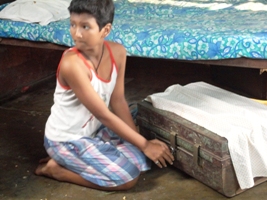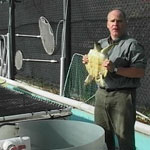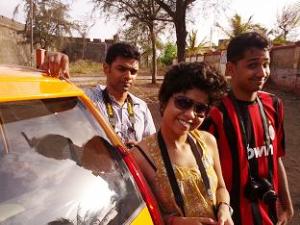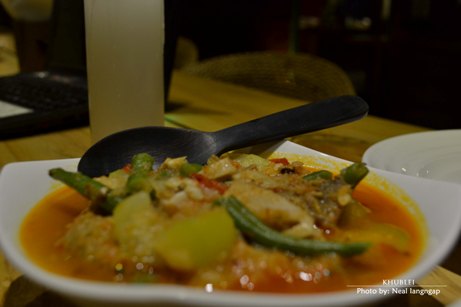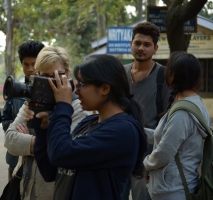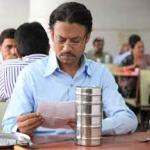Belir Hatat Dhari (Holding the hand of the Sun) is a sincere and touching effort by Guwahati-based filmmaker Antara G G Choudhury to explore innocence and dilemmas of childhood encapsuled into twenty four minutes long short film. The film, that not only bagged the Kamal Narayan Choudhury award for best direction in short film category and Nip Barua award for best Short film in the State Film Award 2013, has also been been screen in Film festivals across the country including ‘Vibgyor International Film Fetival 2013 in Thrisur and also ‘Signs’ a festival of digital films in Trivandrum Kerela.
Produced by Kulen Phukan and directed by Choudhury, the film depicts the innocent desires of a child that leads him to committing a grave mistake and then going through mental turmoil before he could decide his way out of this situation with an act of repentance.
Latu, a carefree teenager enjoys cycling and playing with his friends after school hours and also relishes savouries. Living with his mother, younger sister and grandmother, he eagerly awaits the arrival of his father who works in the town and visits the village home every weekend. The boy is content with whatever comfort his parents have provided to him and demands things only when necessary, until greed overpowers him at one day. The moment in the film successfully explores the intricacies of an adolescent mind where innocence and lack of the sense of possession is crushed by a strong inclination towards materialistic gains.
Latu (Played by Ayanjit Dev Sarma) notices his mother’s box of coins where she stores her savings after taking care of the household expenses with the little money provided by her husband. The next day when The mother is away visiting a temple with his sister, and the grandmother takes an afternoon nap, Latu breaks open the lock and steals a handful of coins and asks his friend (Who is unaware of the source of money that Latu carries) to join him for a day out.
Latu first buys accessories for his bicycle and then treats his friend at a small restaurant. While eating Latu’s conscience pokes him hard and he is unable to eat. He repents his deed and tries to overcome his guilt by throwing away the newly bought accessories and spending the rest of the money to buy a sapling that he could give to his mother to plant. On his return home he feels ashamed to face his weeping mother and worried sister and grandmother. The mother played by Trisha Saikia says all with her tears and sorrowful expression and without using a word makes her son realize the agony he has given her. She drops the plant and walks away. Latu sheds tears of repentance while planting the sapling in the garden, as if taking a vow never to commit any sin ever again.
The director explains that a real life incident involving a close friend inspired her to make this film. “My friend’s life almost changed after this realization as an adolescent and today that has become a guiding force for him to live a more meaningful life. I used the medium of short film to convey the message in my own way because short films give us a scope to highlight an issue under the sun in a convenient manner,” says Choudhury who has a few short films to her credit and hopes the message hits the right chords among the audiences.
Find us on facebook: facebook.com/TheThumbPrintMag

